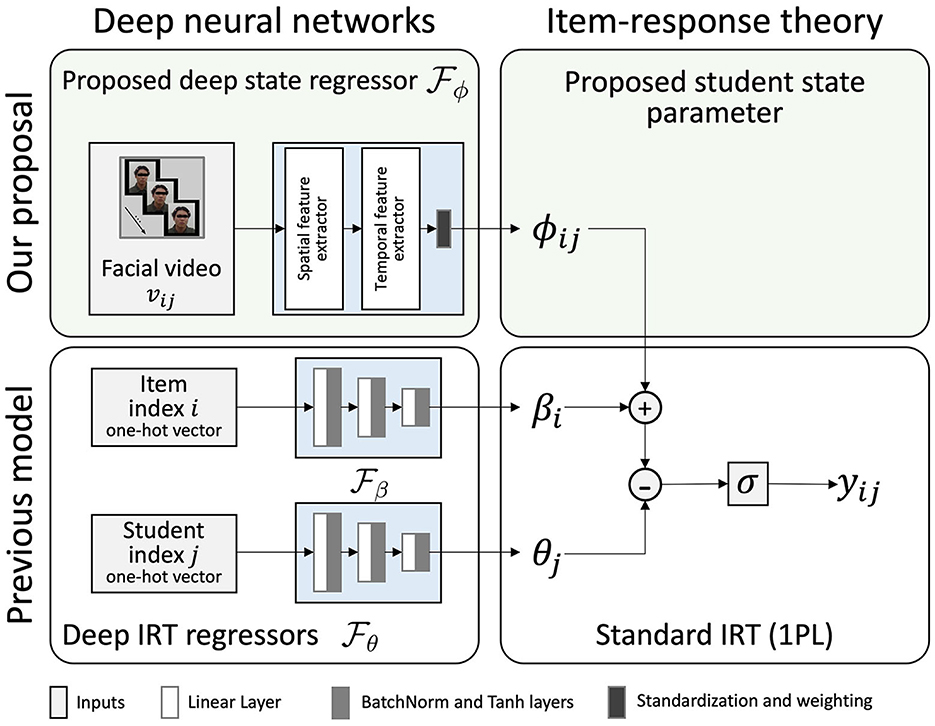State-Aware Deep Item Response Theory Using Student Facial Features
Yan Zhou, Kenji Suzuki and Shiro Kumano, Frontiers in Artificial Intelligence, 2024 Jan 4;6:1324279, 2024.
This paper introduces a novel approach to Item Response Theory (IRT) by incorporating deep learning to analyze student facial expressions to enhance the prediction and understanding of student responses to test items. This research is based on the assertion that students’ facial expressions offer crucial insights into their cognitive and affective states during testing, subsequently influencing their item responses. The proposed State-Aware Deep Item Response Theory (SAD-IRT) model introduces a new parameter, the student state parameter, which can be viewed as a relative subjective difficulty parameter. It is latent-regressed from students’ facial features while solving test items using state-of-the-art deep learning techniques. In an experiment with 20 students, SAD-IRT boosted prediction performance in students’ responses compared to prior models without the student state parameter, including standard IRT and its deep neural network implementation, while maintaining consistent predictions of student ability and item difficulty parameters. The research further illustrates the model’s early prediction ability in predicting the student’s response result before the student answered. This study holds substantial implications for educational assessment, laying the groundwork for more personalized and effective learning and assessment strategies that consider students’ emotional and cognitive states.
This is a collaborative work with Artificial Intelligence Lab. at the University of Tsukuba.
